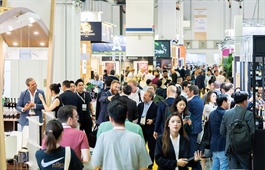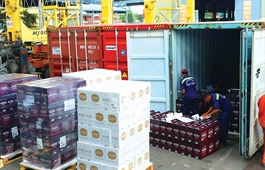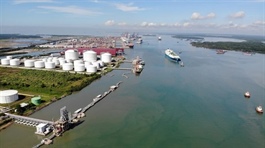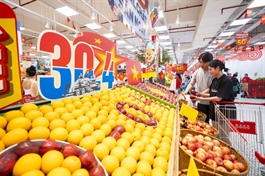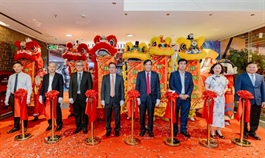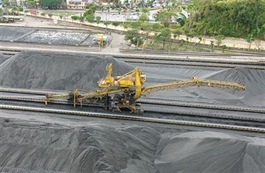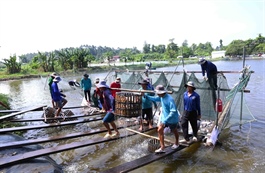US investors see potential in Vietnam’s F&B market
US investors see potential in Vietnam’s F&B market
For investors, Vietnam’s food processing and food/beverage industries offer wide prospects for American companies. US Ambassador to Vietnam Marc Knapper spoke with VIR’s Duc Hanh about potential cooperation between suppliers and investors on both sides.
How do you evaluate the potential of Vietnam’s food and beverages (F&B) market for the US suppliers and investors, and what segments are key for them?
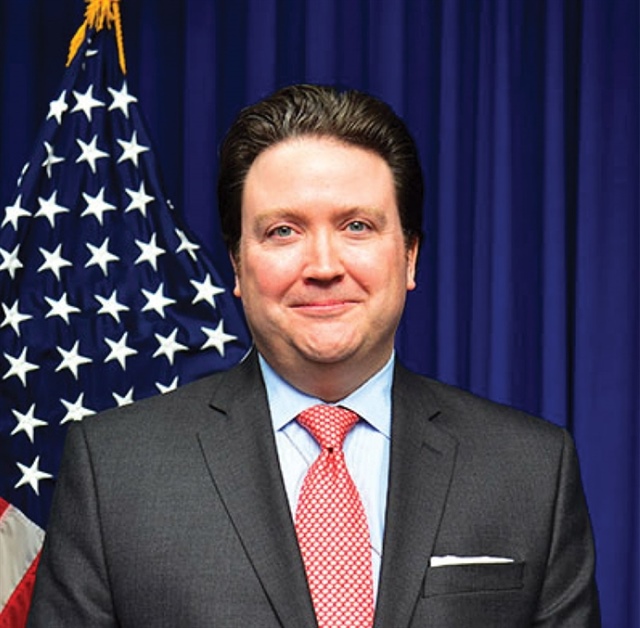
US Ambassador to Vietnam Marc Knapper |
As our two countries celebrate 30 years of relations, I am happy to say that Vietnam’s F&B market presents strong potential for American suppliers and investors due to Vietnam’s rapid urbanisation, growing middle class, and increasing demand for high-quality imported food. When looking at any market, US companies will expect to find transparent, stable, and predictable business conditions conducive to their interests.
American suppliers have a strong presence in Vietnam’s market, particularly in meat and poultry, including beef, chicken, and pork, along with fresh fruit. Grains and oilseeds, including soybeans, wheat, and corn, as well as tree nuts, play a major role in food processing and animal feed, while processed foods and beverages from the United States continue to gain popularity.
We look forward to working with counterparts in the Vietnamese government on market access for high-quality US plums, lemons, and mandarins. Also, I am very excited that blueberry season in the United States has started. High-quality US fresh fruits such as blueberries and cherries are also popular with Vietnam consumers.
For investors, Vietnam’s food processing sector offers significant opportunities, especially in local manufacturing. Hotels and high-end restaurants are important buyers for premium products like American beef and wine. US fast food and restaurant chains are expanding, reflecting a demand for American dining experiences.
The e-commerce and food delivery sectors are also booming, creating openings on digital platforms, while cold chain logistics are increasingly vital as imports of perishable goods grow.
Besides introducing and promoting American products to Vietnamese markets, do you have extra activities to boost Vietnamese F&B products for import to the United States?
Trade shows provide valuable opportunities to showcase products, network, and exchange information. The Food and Hospitality Trade Show in Hanoi attracted over 10 American agricultural organisations, highlighting strong industry connections. Additionally, numerous trade shows in the United States offer further opportunities for collaboration.
As we celebrate 30 years of US-Vietnam relations, we will be holding more special events this year and encourage everyone to follow Mission Vietnam social media platforms for updates.
Are there any programmes to help Vietnamese enterprises improve their quality and safety standards in production and processing to meet the requirements for products imported to the United States?
We collaborate with Vietnam’s Ministry of Agriculture and Environment (MoAE) to encourage predictable, transparent, and science-based food regulations. The US Department of Agriculture’s Global Agriculture Information Network also offers timely insights on the agricultural economy, products, and key issues.
During my meeting in March with Minister Do Duc Duy, we discussed shared goals in boosting agricultural trade, sustaining plant and animal health, and advancing cooperation as our countries work together towards greater prosperity for American and Vietnamese fishers and farmers.
Does the US Department of Agriculture have any suggestions to help Vietnamese authorities speed up their digital and green transformation to more effectively control the quality of agricultural products?
The US Department of Agriculture works closely with the MoAE, providing recommendations and guidance to strengthen agricultural trade and cooperation. I know that the ministry has ambitious plans for the agricultural sector and collaborates closely with programmes like One Commune, One Product, and others to drive growth and innovation.
The US side is also working closely with the MoAE to implement the Fertilise Right initiative, which works with Vietnamese rice farmers in both the Mekong River Delta and the Red River Delta to use fertilisers more effectively, as well as to develop alternatives to chemical fertilisers. This is being done in close coordination with the ministry’s project involving production of 1 million hectares of high-quality rice.
- 12:40 03/05/2025







